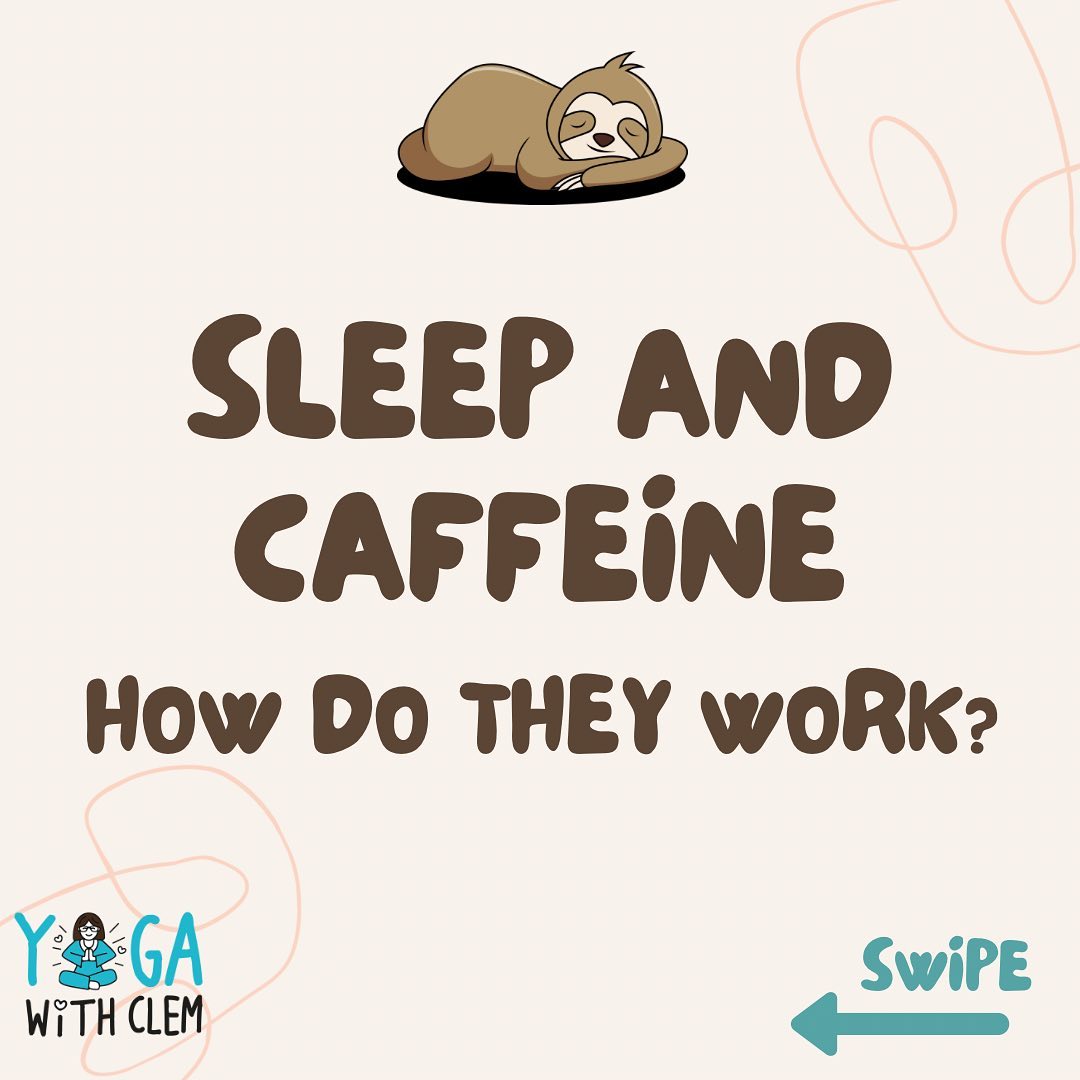How you choose to use caffeine has a profound impact on your sleep, and as a result, on your health and well-being.
I now always ask my new students how much and how well they sleep, and aiming to improve sleep quality is a big part of what I do!
Why do we feel tired?
Quick physiology lesson!
During the day, we get a build-up of a hormone called “adenosine” in the brain. The more adenosine we have, the more tired we feel.
The only way to release this adenosine is by sleeping.
What does caffeine do?
Caffeine fixes itself on the adenosine receptors.
The brain doesn’t detect the adenosine anymore, so we don’t feel (as) tired anymore.
But adenosine keeps building up! So when we don’t have caffeine in our system anymore, we suddenly feel all the tiredness that kept building up. Caffeine crash.
“Don’t talk to me before I’ve had my coffee!”
If you can’t function in the morning without a cup of coffee, it’s a good sign that you haven’t slept enough to release all the adenosine from the day before.
In other words: you are sleep-deprived.
How caffeine messes with your sleep
If you struggle to fall asleep in the evening, it’s useful to know that it can take up to 10 hours for the body to process caffeine.
Your afternoon cup of tea or coffee may be preventing your brain to feel the build-up of adenosine.
Aim to have your last caffeine intake right after lunch for a while, and see if it helps.
I hope this was instructive :)
If you need help to improve your sleep, reduce your anxiety and increase your mobility, please send me a message!

